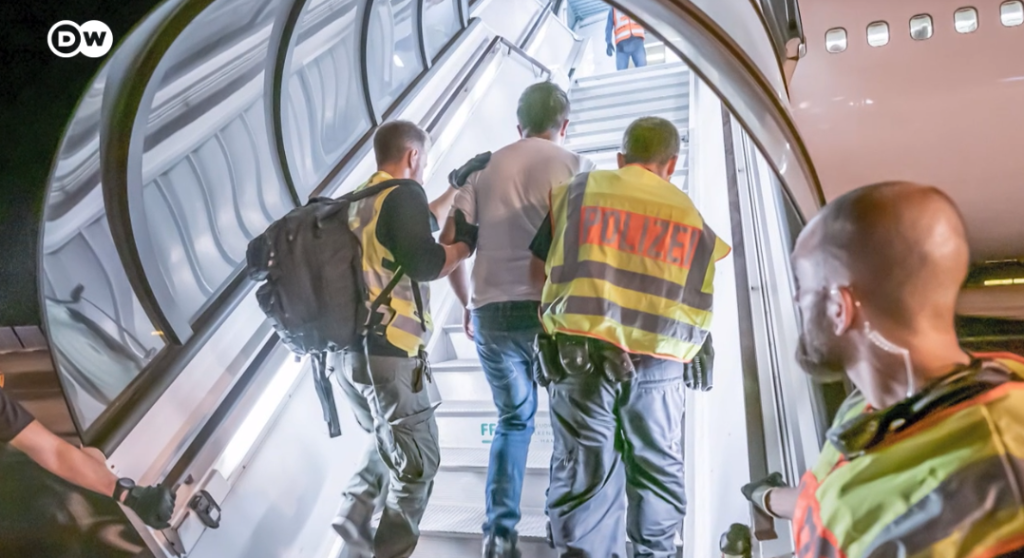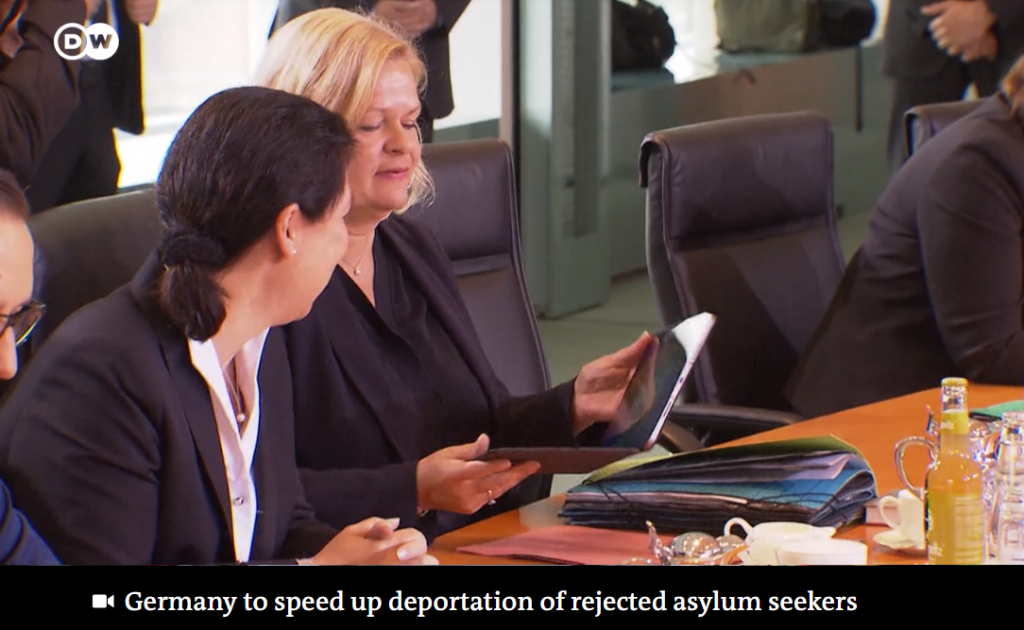
A proposed law would see longer detention for rejected asylum seekers, stricter ID checks and expanded powers for police. The move comes as the government faces criticism from voters over inaction as arrivals increase.
Germany’s Cabinet on Wednesday approved legislation designed to make it easier for authorities to carry out the deportation of individuals who have had their asylum requests denied.
The draft, put forth by Interior Minister Nancy Faeser, who, like Chancellor Olaf Scholz, is a Social Democrat, proposes a number of changes to existing deportation rules.
The proposal must now go to the Bundestag, Germany’s parliament, for approval before it can go into effect. A vote is expected in November.
The opposition CDU/CSU has signaled approval. The Greens, a coalition partner, have voiced opposition — with some calling the proposal a massive encroachment on fundamental rights, labelling it disproportionate and too severe.
What is in the deportation legislation?
The new legislation requests a number of changes, leading with extending the maximum length of pre-deportation detention from 10 to 28 days. This is designed to make it easier for authorities to guarantee deportations actually take place. Currently, these often fail at the last minute.
At the moment, such failures occur either due to lack of cooperation from migrants — who for instance, do not provide identification papers — because they are severely ill, they come from a war zone, or because their home countries refuse to take them back.
Other proposed changes include expanded police powers, specifically doing away with the requirement to notify an individual before they are deported — with exceptions for those people who are ill or have children with them.
Another change would allow police to search the residences of third parties when seeking to establish a migrant’s identity. Previously, authorities were only allowed to search the bedroom of the individual in question.
Furthermore, police will also be given the right to search computers and cellphones to establish an individual’s identity.
Those migrants determined to have criminal connections will also be subject to swifter deportation, regardless of whether they have committed crimes in Germany.
Coalition parties getting hammered on immigration at the polls
Faeser, who proposed the changes two weeks ago, said Germany had deported 27% more individuals this year compared to last but said there is still, “a significant need for action.”
Faeser said the changes were needed, “to protect the fundamental right to asylum,” saying “we must significantly limit irregular migration.”
Chancellor Scholz last week, seeking to convince skeptical voters of the government’s intention to get a handle on the issue, called for the “large scale” deportation of those with no right to stay in the country.
The move comes as the coalition faces the wrath of voters at the polls over the issue. Faeser, for instance, was roundly defeated in recent state elections in part because of a perceived weakness on immigration, while anti-immigrant parties — foremost among them far-right Alternative for Germany (AfD) — saw large gains.
Will home countries take citizens back?

Germany has seen a spike in the number of migrant arrivals of late, this, on top of a large influx of displaced Ukrainians — Germany has taken in over 1 million since Russia launched its invasion of Ukraine in February 2022.
Last year, 244,000 people applied for asylum in Germany, with estimates suggesting that number could climb to 300,000 this year.
Interior Ministry data notes that roughly 255,000 people currently in Germany are obliged to leave the country, though roughly 205,000 of those individuals possess “tolerated status,” meaning they cannot be deported.
The Interior Ministry said 12,000 individuals had been deported between January 1 and the end of September.
Chancellor Scholz recently said that his government was seeking, “agreements with countries from which refugees come who cannot stay.”
Berlin is currently in talks with Georgia, Moldova, Kenya, Uzbekistan and Kyrgyzstan but others, such as Nigeria, Zambia and Iraq, have refused such cooperation.
Lastly, Interior Minister Faeser has also proposed toughening criminal sentences for human smugglers and said that Germany will extend recently initiated checks along its borders with the Czech Republic, Poland and Switzerland for at least 20 days. These were originally reinstated for a period of 10 days on October 16.


